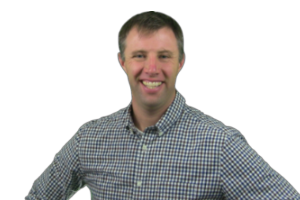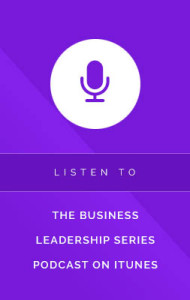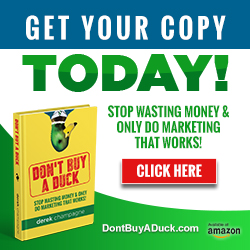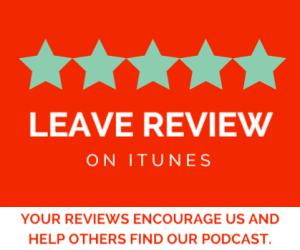BLS Interview with Scott Beebe, Part 2

Derek continues his interview with Scott Beebe, the producer and host of the Business On Purpose podcast and is actively involved in the business Mastermind program.This is part 2 of his interview.
Listen to the full podcast here.
Derek: So I loved hearing about what you’re doing. Let’s talk a bit more about your journey that you’ve had. What are some of the most important things that you’ve learned on your journey that you can share with our audience, through all of your life experiences, to get you to where you are today?
Scott: Bill Gates, Eric Schmidt- they both said the same thing. When asked, they said, “Hire a coach”. When all of that happened a year ago, I was scared to death, we had a little severance to go on, so we took about a third of that severance and I decided to invest it. So I hired Aaron Walker as my coach. He wasn’t cheap, it’s still not cheap, but it was one of the best investments, honestly, I believe I could make because we need people outside of ourselves who are donning the whistle, showing up to practice. They’re studying the game, they’re helping this game plan, they’re asking us every week, “Hey, you told me you were going to do this last week. Did you do that?”. They’re helping us adjust at half time, in all of those things.
When I heard Bill Gates literally say it on a- I saw it on a Youtube video actually, it was a Ted talk. He said everyone needs a coach. And somebody asked Eric Schmidt, the former chairman of Google, he may still be a part of Google actually, about what were some of his greatest pieces of wisdom that he had received. The first one he said is, “Hire a coach”. Steve Jobs had a coach, Peyton Manning- actually I just heard he retired, on the news. Peyton Manning, throughout his entire career, one of the greatest quarterbacks that ever lived, has always had a coach. So that was one of the big takeaways for me, is take money, take time, and invest it in somebody else outside of yourself, who’s smarter than you are in certain areas and who is willing to push you to do things that you don’t think you’re capable of.
Derek: A lot of the small business owners don’t have a big executive team or don’t have a big consulting or advisory board. And to have somebody that’s knowledgeable as an expert, to come in and look at it from a fresh perspective with their wealth of experience, makes a big difference and, for me, the consultants I worked with have saved me some years of guess work from a business-consulting angle. They made a big difference in my growth.
Scott: We’ll think about this too from a- alright so you hire an operations person for your business, you’re going to need to spend at least, I mean, depending obviously on the business you’re in, you’re going to need to at least spend $50 to $120 grand to be able to do that. Now, what you could do is you could hire a coach, not to say they’re going to run the day to day, don’t get me wrong. I don’t want to confuse the two for that, but what a coach can help you do, is process your backside business to a point where you may be able to kind of delay bringing on a person of that caliber at least for a year. The coach is going to cost you, let’s say $12 to $24 grand a year, so you cut your cost in half. You’re still achieving some of the same results until you get a point where the sales come in, where you can actually bring that person on to show that it’s going to leverage. The idea of 10.99ing people right now for small business owners is a huge, huge untapped opportunity. In fact, in my six-year vision, I have no W2 employees in my vision. I’ve got six virtual assistant team members, and we’ve already brought two on, that we’re going to be able to scale to.
Derek: Tell me a little bit about any challenges or setbacks that you’ve had. What have you learned? What have you learned through failure or from disappointment and challenges? What’s the key lesson that you learned and what helped you get through it? What came out on the other side or what did you produce because of that?
Scott: This year, I’ve keenly learned that failure is a part of product development, I mean, it just naturally is. The other thing I’ve learned about failure is to talk about it, because what I struggled with, Derek, and maybe you can identify with this, is that early on when I was listening to podcasts, everybody was succeeding. It was all success and so, “If you just do this”, you know, a kind of forced out formula, “Then you’ll have success” and blah, blah, blah. Well, that’s not the case. There was a lot of failure in between there and once you finally nail it down. This was notoriously public enemy number one in the church planning world, ironically enough. What happened is, you’d have one hyper success church plan and that guy would get on all the speaker tours, he would show up, say, “We did no promotion, we just showed up on a Sunday, it was pouring down rain and we had 60,000 people show up”.
[laughter]
We just planted a church, we did everything right, it was beautiful sun shiny outside, Jesus himself showed up and we only had four people come. When you get into the story, you realize no, no, no there were a lot of other factors at play. And there was a lot of failure at play at the same time, so I think that’s actually been, kind of, one of my biggest learning points around failure. Is that, it is a natural part of product development and process development, but the thing I still struggle with very, very deeply is I’m an efficiency guy, I’m a process guy. So when failure happens, I’m less concerned about public reputation of the failure and I’m more concerned about the time lost. And I’ve got to start seeing that more as, it’s not time loss- there’s valuable learnings that are coming from that. I’ve just not been able to wrap my head around that. So I would say that that’s probably, Derek, my number one failure. It is the inability to see failure as a part of product development and instead, begin to see it as an incredible tutor for me moving forward.
Derek: Yes, it really is. I wrote about that last week- talking about the successes I’ve had and the scars I’ve had and how those both equally have helped me to grow into the person that I am today and helped how I run my business and work with clients. I think it’s tough, at the time, for us to see setbacks and failure and look at it as something that’s positive until we’ve had it happen a couple of times. Obviously we want a lot more wins than losses, but I think it’s powerful as well as if, in the moment, when you’re having a setback, that you’re able to recognize, “This is something that I’m about to grow from and when I let this go, there’s something really big and powerful that I’m on the cusp of on the other side of this”. And that’s really a powerful place to be actually, when you start to recognize that in the moment.
Scott: I think the challenge is when it’s quiet and where there’s no podcast in your ear. When there’s nobody in the stands, cheering, going “Okay, this is a good thing” because it’s just- that’s the entrepreneurial curse. Which goes back to my original thing, you’ve got to bring somebody in. Who’s going to push you to be able to- I just got off my Master Mind call and I was the man in the middle today, so I was able to bring- shoot, I’ll tell you what I brought in, my big question was, “Do I license my coaching framework?”. I’ve had a few guys in the last couple of weeks basically tell me, “I want to do what you do but I don’t know how to create it”. And so it’s brought up, in fact, one guy just flat out asked me, “Can I like go through a licensing process with you? Will you teach me your framework? And then, I can go out and do it”.
Well yes. I mean, if you’re listening, you’re going, “Yes of course, they’re asking you for it, they’re asking you for it”. Again, in the midst of my own little office here, by myself, I’m- in my mind I’m going, “Wait a second, but if I do that I’ve got to build this, I’ve got to build that. I’ve got to follow up with this”. When there are so many details that go with that. With that alone, I had three guys ask me for it. Does that mean 300 are going to ask me for it, or are those the only three? [laughs] Which is the value of a mastermind or a coach.
Derek: How do you keep from getting distracted? As entrepreneurs we have so many opportunities and we’re always creating things. There are many mornings that I’m awakened by my own thoughts where I’m thinking of something different or new and they’re not always good ideas. They might be billing off what I have or a friend or a client but I usually act on them if it’s a good idea. I’ve had to come to a point when I say, “Okay, when is this a distraction or where am I going with the core vision or principles that I should?”. How do you either quiet that voice or how do you harness it and when do you know if you’re getting in over your head on something?
Scott: I’ve not figured out how to quiet it, I do try to mitigate it. I’m endlessly distracted, I have to admit. I am endlessly distracted. Here’s how I’ve tried to mitigate it: sounds crazy but I try to go to bed between 9:30 PM and 10:00 PM. My morning starts the night before for me because I get to bed at 9:30 PM or 10:00 PM and I try to get up around 4:30 AM. The reason I do that is not because I’m some crazy early morning freak, but it is literally the quietest it will be all day. From 4:30 AM until about 6:00. So I’ve come to a point where, in order not to be completely distracted throughout the rest of the day, I’ve got to get up early. What I do during that hour and a half is my first 20 or 30 minutes are spent just reading. I’ve got a Bible reading plan that I go through and then just some prayer time with a little sheet. It’s on an Excel spreadsheet and I know it sounds highly processed but that’s- again, I’m highly distracted and so that works for me.
Then in the next hour, I’ve actually got a spreadsheet called “Daily task” and there are about eight items on there that I have identified in my business, that will help me drive my business as long as I drip them out on a regular basis. So, for the next hour or so I just drip those things out on a regular basis and I track them so at the end of the month I can look. And there has not been a month yet that I’ve hit- shoot, I haven’t even hit every other day. Just because I may have a client meeting at 5:15 AM in the morning online or whatever. But it keeps a regular schedule. So the month of February, I wrote more thank you notes than I had in the three years prior just because I tracked it and it was part of my drip daily task. So that’s one of the ways I try to mitigate that, and the other one is just hiring virtual assistants. And keeping an action item spreadsheet, that is the money pot for these small business owners that I’m working with. It’s a simple little spreadsheet, to say, “Hey, here’s what we talked about at our last meeting, here’s what you said you were going to do. Next meeting we’re going to pull this up and we’re going to go through it”. I actually had a business owner come out- he pulled me aside after we implemented that in his business and he said, “Man, accountability is a b****”, fill in the blank and that was his kind of term for saying, “Man, this is tough” and it is, but you stay on task.
Derek: Right and that is critical. The consistency and execution and being committed to that is one of the keys and I’m a firm believer in that. That’s one of the main things we do here at our firm-
Scott: If you paid for nothing but implementation, if somebody paid you, Derek, for nothing but implementation around marketing, it would be worth it.
Derek: That’s where we see it fall short, often. Why something didn’t work, while a lot of the times we see that it wasn’t implemented consistently or properly.
Scott: Yes. You can Google ideas now. Think tanks are great, strategy things are great, I love them but that’s where, that’s like- Unfortunately, that’s like my crack cocaine and that’s where I get really distracted is when I’m trying to do that instead of just implementing.
Read Part 1, about Scott Beebe’s background.



